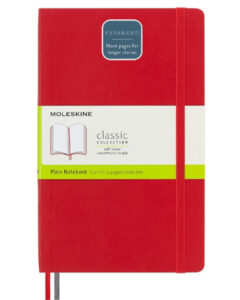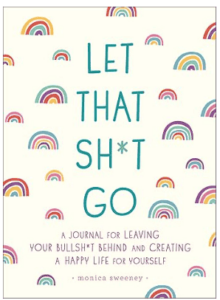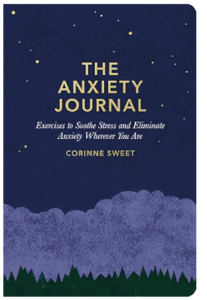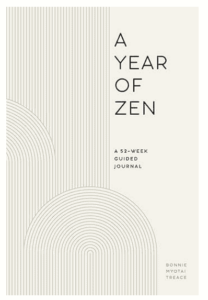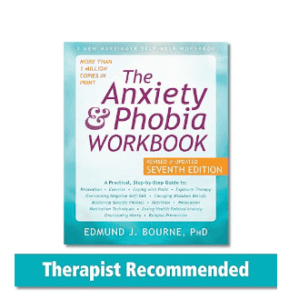If you clicked on this post, then you are well acquainted with the knot of anxiety tightening in your chest. Here are some of the best journaling prompts for anxiety that will help you calm down and manage those anxious feelings.
What if I told you that there’s a simple, creative way to help manage anxious feelings?
Enter: journaling for anxiety. Journaling is truly a deeply psychological practice, that can help you with managing anxiety and stress.
In this blog post, we’ll dive into the world of journaling and how it can be a powerful tool to calm your mind. With 13 psychologist-approved journaling prompts for anxiety, you’ll have plenty of ways to explore your thoughts and emotions.
This blog post is all about journaling prompts for anxiety.
Table of Contents
Toggle1. Does Journaling Help with Anxiety?
When I first came across writing as a de-stressor for anxious thoughts and feelings, I was deeply sceptical. I mean, how can a pen and paper help my racing mind and beating heart?
Through my studies of biopsychology, I have learned that writing is a deeply therapeutic exercise with a solid foundation in psychological research.
PSYCHOLOGICAL INSIGHTS: Studies have shown that expressive writing, like journaling, can significantly reduce symptoms of anxiety and depression. By writing about your thoughts and feelings, you can process and make sense of them, which helps to reduce their intensity and control over you.

From a biopsychological perspective, journaling engages both the left hemisphere (logical, analytical) and the right hemisphere (creative, emotional) of your brain. This bilateral stimulation can help integrate emotional experiences, leading to a better understanding and regulation of emotions. Moreover, writing activates the prefrontal cortex, the brain region responsible for planning, decision-making, and moderating social behaviour. This activation helps in organizing chaotic thoughts and gaining a clearer perspective.
2. How to Start Journaling for Anxiety
If you are a journaling beginner, don’t worry! Journaling is actually pretty simple. Here I put together some tips on how to start journaling for anxiety, so you don’t have to scroll through a hundred guides, that will leave you confused and even more stressed.
Choosing the Right Journal
Having a journal that resonates with you is essential. It can be a simple notebook, a digital app or a beautiful leather-bound notebook. The key is to choose something that is yours and represents your inner self.
Here are some of the best journals for anxiety, that buyers absolutely love:
Setting a Routine
Next, establish a routine. This will help you stick with journaling even on the hard days. Reaping the benefits of journaling for anxiety will only happen if you stick to the habit of journaling. So choose the time, that suits you best. Whether it’s first thing in the morning with your cup of coffee or right before bed, aim to journal for at least 10-15 minutes a day. Consistency is more important than duration.
For a more in-depth breakdown of a journaling routine and a quick free guide to setting your perfect time for journaling, read Top 7 Journaling Basics: Your Roadmap to a Successful Journaling Routine.
Mindset Tips
Approach journaling with an open mind. Remember, there are no rules when it comes to diary writing—just write from the heart and let your thoughts flow onto the page. The goal is to express yourself freely without judgment. Remember, this journal is for your eyes only, so let go of any perfectionism and just write. Journal is for your eyes only, so let go of any perfectionism and just write.
For a more detailed description of how to start journaling, read my blog post How to Write a Personal Journal | The Best Short Course.
3. Journaling Prompts for Anxiety
Now, let’s get to the fun part – the prompts! These 13 creative prompts are designed to help you explore your anxiety, understand it better, and ultimately, find a sense of calm.
JOURNALING PROMPTS FOR ANXIETY
Prompt 1: Write about a recent experience that triggered your anxiety. How did you feel? What thoughts were going through your mind? (Understanding the triggers can help in managing the responses. By identifying the root cause, you can work on strategies to handle similar situations better in the future.)
Prompt 2: Describe a place where you feel completely safe and at peace. What makes this place special? (Visualizing a safe space can be incredibly soothing. This exercise can also be used as a mental escape during stressful moments.)
Prompt 3: List three things you are grateful for today and explain why. (Gratitude journaling shifts your focus from anxiety-inducing thoughts to positive aspects of your life. It’s a simple yet powerful way to reframe your mindset.)
Prompt 4: Write a letter to your anxiety. (What would you say to it? How does it affect your life? Personifying your anxiety and having a conversation with it can help you externalize and confront it more effectively.)
Prompt 5: Imagine your anxiety is a character in a story. Describe its appearance, behavior, and how you interact with it. (This creative exercise allows you to distance yourself from your anxiety and see it from a different perspective.)
Prompt 6: Reflect on a time when you overcame a challenging situation. What strengths did you draw upon? (Reminding yourself of past successes can boost your confidence and resilience, providing you with tools to tackle current anxieties.)
Prompt 7: Create a list of activities that help you relax and reduce anxiety. Why do these activities help? (Having a go-to list of calming activities can be a great resource for when you’re feeling anxious.)
Prompt 8: Write about a person who supports you during anxious moments. How do they help you feel better? (Acknowledging your support system can reinforce the sense of connection and reduce feelings of isolation.)
Prompt 9: Explore your future self. How do you envision managing anxiety five years from now? (Thinking about your future self-managing anxiety effectively can instill hope and a sense of purpose.)
Prompt 10: Identify and describe three coping mechanisms you currently use for anxiety. How effective are they? (Evaluating your coping strategies can help you refine them and discover new, more effective ones.)
Prompt 11: Think about a favorite hobby or interest. How does engaging in this activity impact your anxiety levels? (Engaging in activities you love can be a great distraction and mood booster.)
Prompt 12: Write down any recurring anxious thoughts. Challenge their validity and reframe them in a positive light. (Cognitive reframing can help in reducing the power of negative thoughts and promoting a more positive outlook.)
Prompt 13: Create a “worry list” for the day and then a plan to address or let go of each worry. (Having a plan can reduce the feeling of being overwhelmed and help you focus on actionable steps.)
Additional Resources
If you’re looking to dive deeper into journaling and anxiety management, here are a few resources to check out:
1. Workbook:
The Anxiety and Phobia Workbook
Edmund Bourne’s The Anxiety and Phobia Workbook has been a trusted resource for generations of counselors and physicians. If you don’t already have this gold-standard guide, now is the time to add it to your shelf.
2. Apps:
These two apps can be downloaded straight to your phone, ensuring you have support at your fingertips whenever anxiety strikes, no matter where you are.
3. Profesional Help:
If you find that your anxiety is overwhelming and persistent, consider seeking professional support. Therapists and counsellors can provide personalized strategies and support.
Here are a few resources:
By taking proactive steps, like journaling, you’re already on the path to better mental health. Keep going, and don’t hesitate to reach out for help when you need it. You’ve got this!



